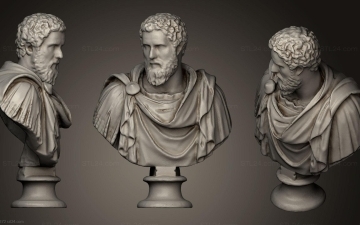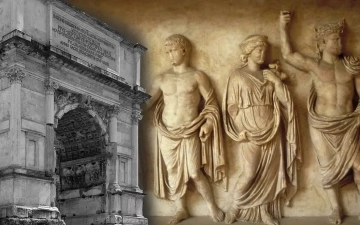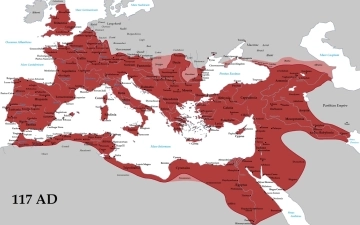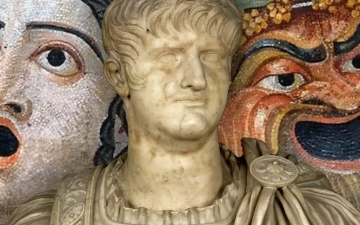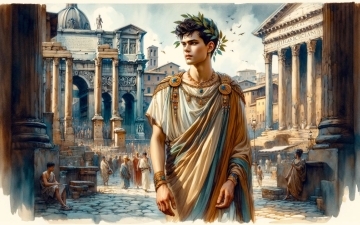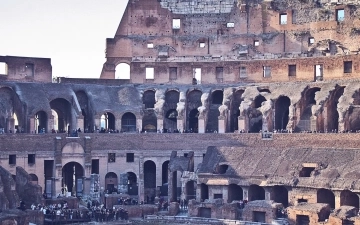Caligula: Madness and Infamy in the Roman Empire
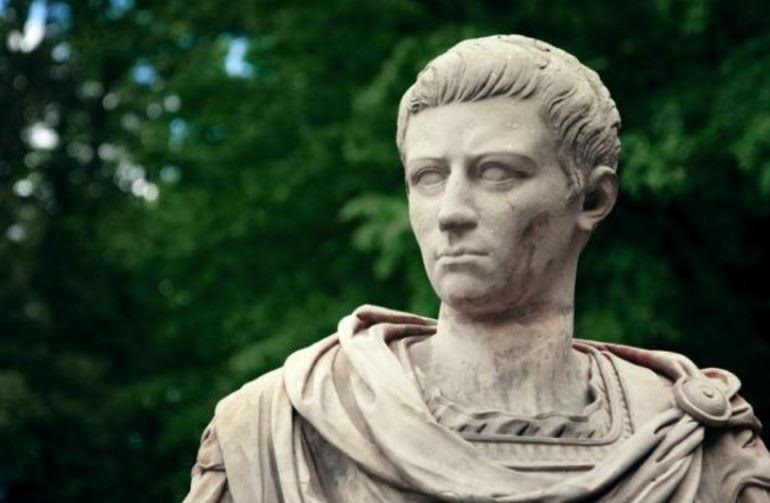
The name Caligula is synonymous with madness and infamy in the annals of Roman history. Gaius Julius Caesar Augustus Germanicus, known as Caligula, was the third Roman Emperor, and his tumultuous reign left an indelible mark of cruelty, debauchery, and tyranny. In this article, we delve into the life and notorious reign of Caligula, shedding light on the dark chapters of the Roman Empire.
Early Life and Rise to Power
Caligula was born in 12 CE to Germanicus, a prominent military commander, and Agrippina the Elder. His early years were marked by a close association with the Roman legions, earning him the nickname "Caligula" (meaning "little boot") due to the miniature military uniform he wore as a child.
After the death of his father and family members, Caligula found himself in a precarious situation. However, in 37 CE, the Praetorian Guard proclaimed him Emperor, bringing him to power at the age of 25.
The Early Years of Rule
Initially, Caligula's reign appeared promising. He showed early signs of political acumen and populism by increasing public games and restoring confiscated property. However, this façade of benevolence was short-lived.
Reign of Madness and Cruelty
Caligula's rule soon descended into madness and cruelty. His actions shocked even the morally desensitized Roman populace. Some of the most infamous deeds during his reign included:
- Repression and Exile: Caligula ruthlessly exiled, tortured, or executed perceived enemies, including senators and his own family members.
- Deification of Himself: He declared himself a god, demanding divine honors from his subjects.
- Lavish Extravagance: Caligula squandered the treasury on extravagant projects, such as building a floating bridge across the Bay of Baiae and constructing opulent palaces.
- Debauchery: His personal life was marked by debauchery and sexual excesses, further eroding his moral standing.
- Pervasive Fear: Citizens lived in perpetual fear of his unpredictable and violent outbursts.
Assassination and Legacy
Caligula's reign of terror came to an end in 41 CE when he was assassinated by a group of conspirators, including senators and members of the Praetorian Guard. His death was met with a mixture of relief and celebration by the Roman populace.
Caligula's legacy is one of infamy and madness. His reign serves as a stark reminder of the dangers of unchecked power and the potential for cruelty within a totalitarian regime. After his death, the Senate and Roman historians sought to erase his memory from history, illustrating the profound impact of his tyranny on the collective consciousness of Rome.
The reign of Caligula remains a dark and cautionary tale in the history of the Roman Empire. His name lives on as a symbol of the depravity and madness that can manifest in the corridors of power, serving as a stark contrast to the ideals of justice, order, and virtue that the Roman Republic and Empire aspired to uphold.
Related Posts
Didius Julianus: The Emperor Who Bought the Roman Empire
The year 193 AD was a tumultuous one for Rome. The assassination of the capable Pertinax plunged the empire into a crisis of leadership. The Praetorian Guard, the elite imperial bodyguards, found themselves without a master and, true to their corrupt nature, decided to auction off the imperial throne. In...
Read MoreVespasian: Rebuilding Rome and the Legacy of the Flavian Dynasty
The Roman Empire has seen its share of dynasties and emperors, but few have left as lasting a legacy as Vespasian and the Flavian Dynasty. Vespasian, the founder of this dynasty, rose to power during a time of turmoil and financial crisis and proceeded to transform Rome. In this article,...
Read MoreA Journey Through Time: Mapping Ancient Rome and Jerusalem
For centuries, Rome and Jerusalem have captivated historians and travelers alike. These two powerful cities, though geographically distant, were intertwined throughout much of their ancient history. But how close were they? Let's explore maps depicting these ancient cities and their respective empires. The Mediterranean World: A Roman Sea During the height of...
Read MoreNero: The Notorious Emperor Who Fiddled While Rome Burned
The name Nero is synonymous with tyranny, extravagance, and the infamous image of an emperor who, according to legend, played the fiddle while Rome was engulfed in flames. Nero's reign is a dark chapter in the history of the Roman Empire, marked by cruelty, decadence, and the disastrous Great Fire...
Read MoreElagabalus: The Controversial Reign of Rome’s Youngest Emperor and His Religious Revolution
Elagabalus, born Varius Avitus Bassianus, is one of the most enigmatic and controversial figures in Roman history. Elevated to the imperial throne at the tender age of fourteen, his reign was marked by extravagance, scandal, and a radical religious transformation. His rise to power was as dramatic as his subsequent reign....
Read MoreFrom Ancient Rome To Today: 4 Games Played By Emperors And Their Modern Equivalents
In history, Ancient Rome had rulers who enjoyed games that involved intelligence and risk-taking. The interesting part is that some of these games have now evolved to their modern versions that still entertain people. When we look at the Ancient Roman history of emperors having fun, most of them went for...
Read More

















